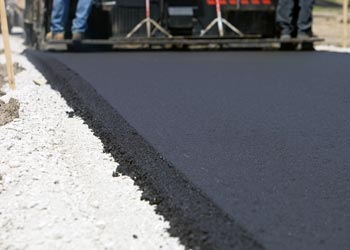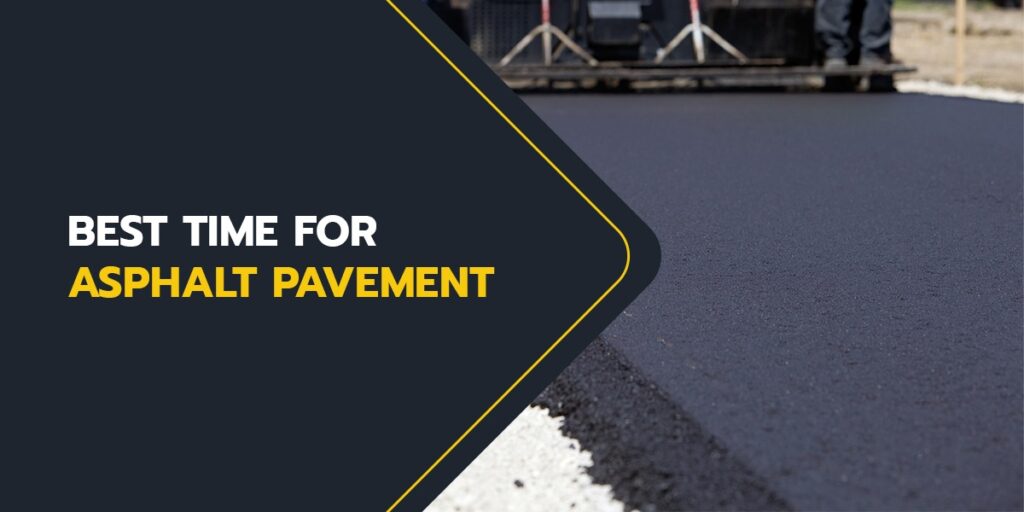Recognizing the Different Kinds Of Asphalt Paving Available Today
In the world of construction and infrastructure, an extensive understanding of the different kinds of asphalt paving is critical for optimum task outcomes. From the robust Hot Mix Asphalt, designed for high-traffic areas, to the environmentally conscious Porous Asphalt that helps with water management, each type presents distinct advantages customized to specific demands.

Warm Mix Asphalt
What makes warm mix asphalt a preferred selection for roadway building and construction and fixings? Warm mix asphalt (HMA) is preferred for its toughness, convenience, and efficiency under varying conditions. Composed of a mixture of accumulations and fluid asphalt cement, HMA is produced at high temperatures, typically in between 300 ° F and 350 ° F (asphalt paving acworth ga). This high-temperature application permits ideal bonding and compaction, leading to a smooth, resilient surface area that can hold up against hefty traffic loads and damaging climate.
HMA's capacity to be customized to details task requirements is one more significant benefit. Different gradations and formulations can be utilized to boost properties such as adaptability, resistance to deformation, and long life. Additionally, warm mix asphalt can be rapidly installed and opened up to traffic, lessening disruption throughout construction.
Ecological considerations likewise contribute in the choice for HMA. The product is recyclable, and recovered asphalt sidewalk (RAP) can be reused, promoting sustainability in roadway construction techniques. Overall, hot mix asphalt stands out as a trustworthy option, successfully giving a lasting, high-performance surface area that fulfills the demands of contemporary framework.
Cold Mix Asphalt
Cold mix asphalt is a versatile alternative to warm mix asphalt, specifically suited for particular applications such as patching and surface area therapies. This kind of asphalt is produced at ambient temperatures, enabling for less complicated handling and application without the need for comprehensive home heating tools.
Generally composed of asphalt solutions or lessenings, cool mix asphalt can be mixed on-site or purchased pre-mixed. Its residential properties allow it to bind well with existing sidewalk, making it a reliable service for fixing potholes, cracks, and other surface problems. It can be used in a selection of climate problems, giving a sensible alternative for year-round upkeep.

Nonetheless, while cold mix asphalt is suitable for temporary repairs, it might not provide the exact same long life or resilience as warm mix asphalt under hefty traffic conditions. Thus, it is best utilized for low-traffic areas or as a short-lived solution until more long-term fixings can be executed.
Cozy Mix Asphalt
While warm mix asphalt has actually long been the standard for road building, warm mix asphalt (WMA) has become a cutting-edge choice that balances efficiency with environmental factors to consider. WMA is created at considerably reduced temperatures-- normally in between 215 ° F and 275 ° F-- contrasted to warm mix asphalt, which is heated up to around 300 ° F. This reduction in temperature not only decreases energy consumption but likewise reduces greenhouse gas discharges during production.
The technology behind WMA involves using ingredients or strategies that make it possible for far better workability at reduced temperatures. These can include chemical additives, frothing procedures, or a mix of both. Therefore, WMA maintains the necessary homes for sturdiness and performance while offering an extra eco friendly option.

Permeable Asphalt
Permeable asphalt stands for a forward-thinking strategy in sidewalk layout, focusing on both capability and ecological sustainability. This cutting-edge product is especially crafted to permit water to penetrate via its surface area, successfully lowering drainage and advertising groundwater recharge. Consequently, porous asphalt is an exceptional selection for locations susceptible to flooding or where stormwater administration is important.
The make-up of permeable asphalt differs from conventional asphalt, featuring a higher percent of gaps that assist in drain. This residential property not just lessens surface water accumulation yet additionally assists reduce problems like hydroplaning and improves lorry grip during wet problems. asphalt paving acworth ga. Furthermore, porous asphalt can add to metropolitan warmth island reduction, as it permits better dissipation and cooling results in city environments
In regards to setup, permeable asphalt needs mindful consideration of underlying water drainage systems to make sure optimal efficiency. Upkeep normally involves routine inspections and cleaning up to prevent blocking from particles, which can impair its leaks in the structure. Overall, permeable asphalt functions as a sustainable paving option that aligns with contemporary ecological goals, making it a progressively preferred choice for both exclusive and public projects.
Rubberized Asphalt
Rubberized asphalt is a sophisticated paving product that incorporates recycled rubber, usually sourced from scrap tires, right into the asphalt mix. This innovative method not just boosts try this web-site the performance of conventional asphalt yet additionally promotes environmental sustainability by reusing waste products. The enhancement of rubber boosts the flexibility and sturdiness of the sidewalk, making it resistant to breaking and deformation under differing temperature level conditions.
Among the significant advantages of rubberized asphalt is its ability to lower sound air pollution. The rubber fragments soak up noise, resulting in quieter highways, which original site is particularly helpful in city locations. This kind of asphalt gives boosted skid resistance, boosting safety and security for lorries.
Rubberized asphalt additionally adds to expanding the life-span of roadway surfaces, resulting in minimized maintenance expenses in time. This longevity is particularly valuable for high-traffic areas where damage are increased. In addition, its resistance to dampness infiltration assists lessen the danger of water damage, further enhancing sturdiness.
Final Thought
In summary, the selection of asphalt paving kinds-- Warm Mix Asphalt, Cold Mix Asphalt, Warm Mix Asphalt, Porous Asphalt, and Rubberized Asphalt-- each satisfy unique functions that deal with varied building and construction and upkeep demands. These choices not only enhance roadway high quality but additionally add to sustainability internet with decreased energy intake and enhanced water management. Recognizing these differences is essential for picking the proper asphalt type, inevitably making sure effective and effective leading services in various atmospheres.
From the robust Warm Mix Asphalt, made for high-traffic areas, to the ecologically mindful Porous Asphalt that assists in water administration, each type provides distinct advantages customized to particular demands.Usually made up of asphalt emulsions or lessenings, cold mix asphalt can be blended on-site or purchased pre-mixed.While hot mix asphalt has actually long been the standard for road construction, warm mix asphalt (WMA) has actually emerged as an ingenious choice that balances performance with ecological factors to consider.Rubberized asphalt is an advanced paving material that includes recycled rubber, typically sourced from scrap tires, into the asphalt mix.In recap, the selection of asphalt paving types-- Hot Mix Asphalt, Cold Mix Asphalt, Cozy Mix Asphalt, Porous Asphalt, and Rubberized Asphalt-- each accomplish distinct functions that provide to varied construction and maintenance requirements.